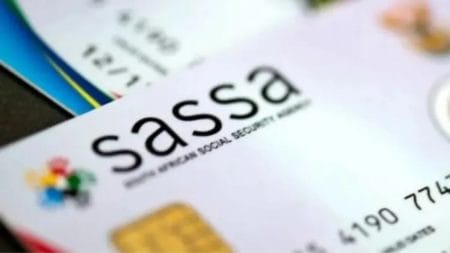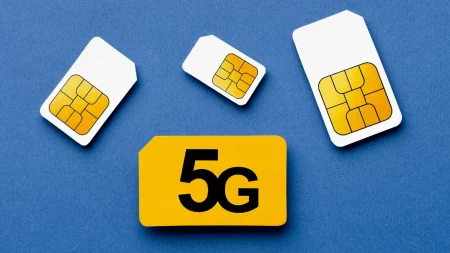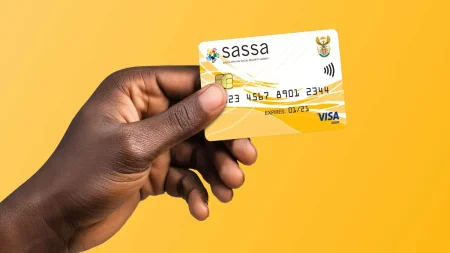The South African Social Security Agency (SASSA) has issued a public warning about a fraudulent message circulating online regarding a supposed R700 grant payment. This R700 Grant Scam is entirely false and does not originate from SASSA.
Citizens are advised to ignore the message and avoid sharing any personal information linked to this fake scheme.
Details of the R700 Grant Scam
The fraudulent message claims the following:
- Eligibility: It falsely states that all South Africans under the age of 65 qualify for a R700 payment.
- Online Application: A link is provided for people to “register” for the grant.
- Misleading Numbers: It suggests that over 675,000 citizens will receive the grant in 2024.
The scammers use SASSA branding, including the logo and colors, to make the message appear legitimate. This is a deliberate attempt to deceive South Africans into sharing sensitive information.
Why the R700 Grant Scam Is False
- No Official Grant Announcement: SASSA has not announced any R700 grant payment. All official updates regarding social grants are communicated through verified channels, such as their website and social media pages.
- SASSA Does Not Require Online Registrations for Grants: The R700 Grant Scam redirects people to suspicious links for “registration.” This is not how SASSA operates.
- Unprofessional Language: The fake message contains errors and inconsistencies, a common feature in scams.
- No Verified Source: Legitimate SASSA announcements are always verifiable on their official website or social media platforms.
Protect Yourself from the R700 Grant Scam
To safeguard yourself and others from falling victim to the R700 Grant Scam, follow these critical tips:
- Verify the Information: Always check SASSA’s official communication platforms for updates:
- Website: www.sassa.gov.za
- Twitter: @OfficialSASSA
- Facebook: SASSA Official Page
- Avoid Clicking Unknown Links: Scammers often include links to phishing websites that steal personal and financial information. The R700 Grant Scam is an example of this tactic.
- Assess the Language and Formatting: Official communications are professional and free from grammatical errors. The language in the R700 Grant Scam is poorly written, which should raise red flags.
- Report Suspicious Activity: If you come across messages like the R700 Grant Scam, report them immediately to SASSA or the South African Police Service (SAPS). SASSA’s fraud hotline can also be reached at 0800 60 10 11.
Steps to Take If You’ve Been Scammed
If you mistakenly provided personal information or clicked on a link in the R700 Grant Scam, act quickly to mitigate potential harm:
- Change Passwords: Update passwords for your email, banking apps, and other accounts linked to your personal information.
- Monitor Bank Accounts: Keep a close eye on bank statements and report any unauthorized transactions.
- Contact Authorities: Notify SASSA, SAPS, or a cybersecurity expert to report the incident and seek assistance.
The Truth About SASSA Grants
SASSA provides various legitimate grants, such as:
- Child Support Grant
- Old Age Pension
- Disability Grant
- Foster Child Grant
- Care Dependency Grant
- Grant-in-Aid
These grants are provided to eligible South Africans through regulated application processes. SASSA does not randomly introduce new grants like the one claimed in the R700 Grant Scam without prior official communication.
Related: SASSA Confirms Early SRD Grant Payments for December 2024
SASSA’s Response to the R700 Grant Scam
SASSA has been proactive in debunking the R700 Grant Scam by issuing public warnings through their official social media platforms and website. The agency urges South Africans to remain vigilant and report any suspicious communications.
According to SASSA, scams like these exploit vulnerable individuals in need of financial assistance. As a result, they are working with government agencies, including the Department of Social Development (DSD), to combat fraud and protect citizens.
Why Scams Like the R700 Grant Scam Are Dangerous
The R700 Grant Scam is not only misleading but also harmful for the following reasons:
- Identity Theft: Scammers may use stolen personal information to commit fraud, such as opening bank accounts or taking loans in your name.
- Financial Loss: Clicking on phishing links or sharing banking details can lead to the theft of funds.
- Emotional Stress: These scams often target vulnerable people, causing unnecessary anxiety and false hope.
What Can You Do to Help Stop the R700 Grant Scam?
- Spread Awareness: Share verified information about the scam with friends, family, and your community.
- Educate Others: Inform others about how to spot fake messages and avoid phishing scams.
- Report Scams: Help authorities track down and shut down scams by reporting suspicious activity to the appropriate channels.
How to Stay Updated with SASSA
To avoid falling victim to scams like the R700 Grant Scam, ensure you stay informed through reliable sources. Here are a few trusted ways to stay up-to-date:
- Visit the SASSA website regularly for announcements.
- Follow official social media accounts, such as @OfficialSASSA on Twitter and SASSA Official Page on Facebook.
- Contact SASSA directly at 0800 60 10 11 for queries and verification of any new grants or updates.
Related: SASSA Issues Warning Against Scammers Targeting Elderly Grant Beneficiaries
Final Message
SASSA clients and South Africans at large must remain vigilant. Always verify information through official channels and avoid sharing personal information on unknown platforms. Remember: If it seems too good to be true, it probably is.







![[FAKE NEWS ALERT] R700 Grant Scam: SASSA Warns South Africans R700 Grant Scam: SASSA Warns South Africans](https://statuscheck.co.za/wp-content/uploads/2024/11/R700-Grant-Scam-1-1024x576.jpg)


